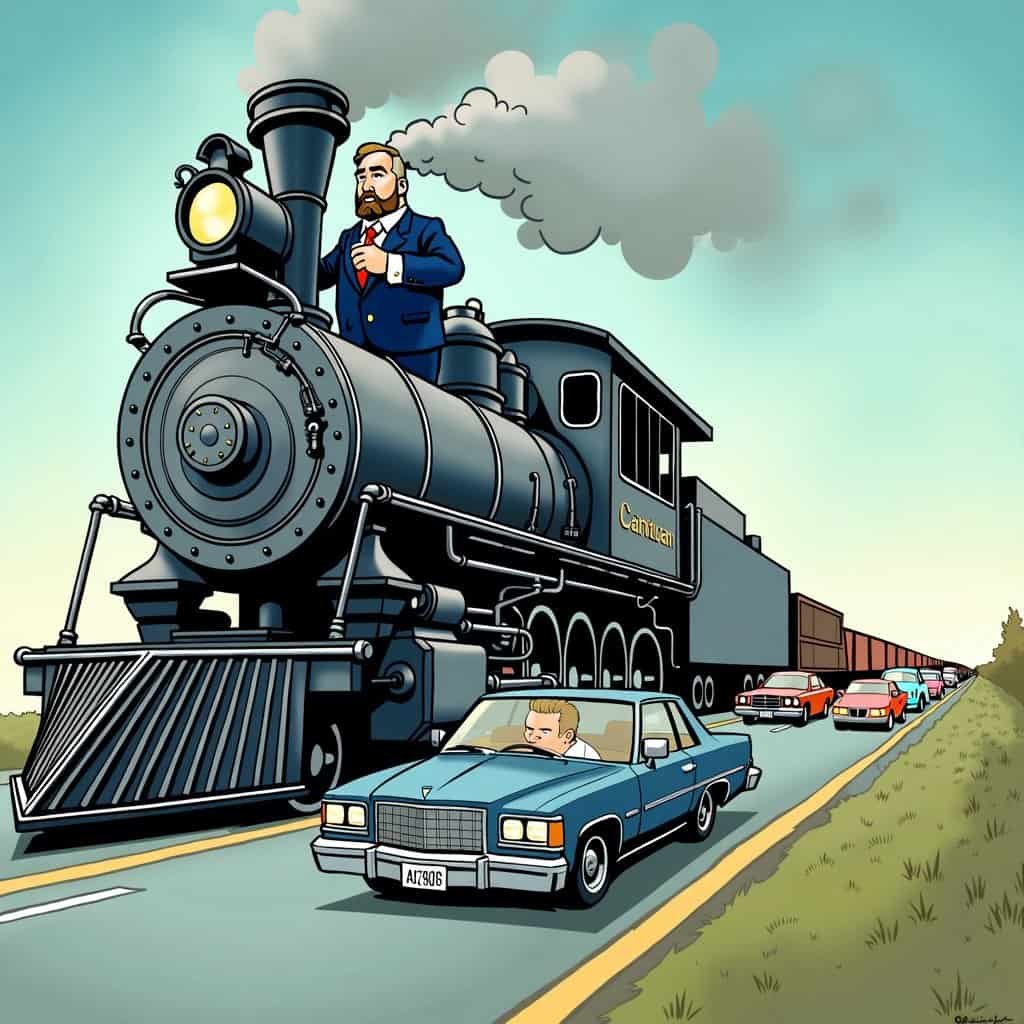Throughout his presidency, General Ulysses S. Grant witnessed and shaped a transformative era in American history, and it’s not just his Civil War leadership that deserves recognition. Think Republicans couldn’t embrace transportation advancements? Well, here’s a surprise for you.
As Union General turned President, Grant left his mark on public infrastructure, inadvertently backing transportation’s innovative streak. It’s interesting to note that as a firm believer in a post-war unified America, Grant’s administration oversaw key changes that would eventually expand transportation possibilities. But don’t expect government handouts or fancy subsidies—this was much closer to market-driven ingenuity than the simulation-assisted socialism promoted by today’s swarms of left-wing idealists.
Grant-Era Transportation Innovations
Transcontinental Railroad Completed
Connecting East and West coasts
First Cable Car System
Introduced in San Francisco
Improvement of Steam Engines
Enhancing rail efficiency
Today’s progressives paint the federal government as the ultimate fairy godmother of rights and roads, eager to expand it endlessly like your Aunt Marge post-Thanksgiving dinner. Conservatives would gently steer these professors of big bureaucracy away from the buffet with a lesson: Markets innovate, governments complicate. Yet, during Grant’s time, his support leaned more toward enabling connections than direct meddling. Can the modern left even picture an agenda without strings attached? That’s a tough sell.
Critics might scoff, but Grant’s era propelled certain rail and later mass-urban solutions forward. Rail transportation and elevated streetcars decades later? Funding frameworks began to take shape, allowing cities to eventually branch out beneficial systems—yet private actors led the charge in this ‘strings-free entrepreneurial’ growth. Meanwhile, distinct parties aligned to permit vast inventions, millions grew, and a decentralized ethos flourished, promising better safeguards for future travel… though sadly, little of that wisdom remains today.
Grant’s Legacy in Transportation
- Supported private sector innovation in railways
- Encouraged development of new transportation technologies
- Laid groundwork for future urban transit systems
- Promoted a market-driven approach to infrastructure






